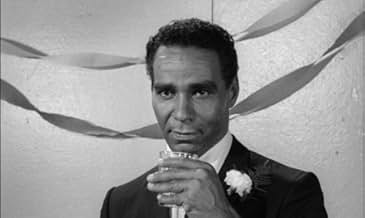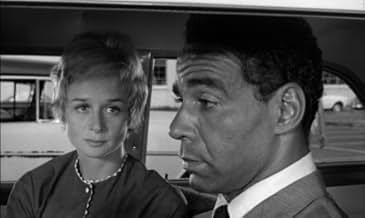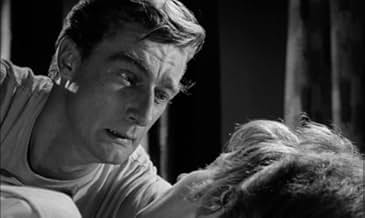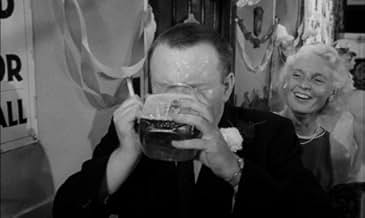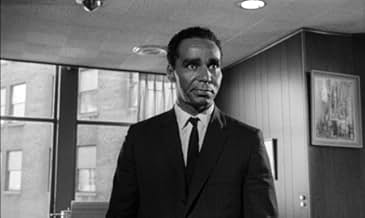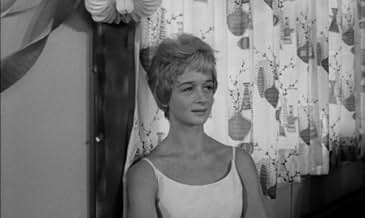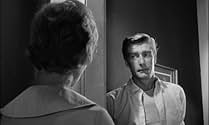Aggiungi una trama nella tua linguaIn his wanderlust, Joe Cullen moves from the US to South America to work in a mining camp, he leaving behind his wife Julie and their infant daughter, Ellen Mary. After Joe stops writing and... Leggi tuttoIn his wanderlust, Joe Cullen moves from the US to South America to work in a mining camp, he leaving behind his wife Julie and their infant daughter, Ellen Mary. After Joe stops writing and sending money, Julie, not expecting Joe ever to return to her in he being dissatisfied wi... Leggi tuttoIn his wanderlust, Joe Cullen moves from the US to South America to work in a mining camp, he leaving behind his wife Julie and their infant daughter, Ellen Mary. After Joe stops writing and sending money, Julie, not expecting Joe ever to return to her in he being dissatisfied with married life, files for divorce, and moves with Ellen Mary to the town of Howard to sta... Leggi tutto
- Regia
- Sceneggiatura
- Star
- Candidato a 1 Oscar
- 2 vittorie e 4 candidature totali
- Ellen Mary
- (as Marti Mericka)
- Martha Richards
- (as Vinette Carroll)
- Johnny Hruska
- (as Sam Weston)
- Orchestra Leader
- (non citato nei titoli originali)
- Bart
- (non citato nei titoli originali)
- Saxophone Player
- (non citato nei titoli originali)
- Minister's Wife
- (non citato nei titoli originali)
- Lawyer
- (non citato nei titoli originali)
- Wedding Guest
- (non citato nei titoli originali)
- Wedding Guest
- (non citato nei titoli originali)
Recensioni in evidenza
Both heroes,when the movie begins (it's a long flashback) , have begun a fight which is lost in advance;the husband's lawyer , a friend though , reluctantly accepts to defend him. Religion lends a helping hand,in a the shape of a wise minister ,but the others do not (look at the face of the woman who attends the ceremony ;even the husband 's father urges his son to stick to his own kind ;it takes the birth of a baby boy to win him over).
If the final scene does not make you cry,nothing will.
Lo sapevi?
- QuizIntermarriage between African-Americans and Caucasians was illegal in 16 states until the US Supreme Court decision Loving v. Virginia was handed down on June 12, 1967. The court unanimously ruled that anti-miscegenation marriage laws were unconstitutional. In his opinion, Chief Justice Earl Warren wrote, "The freedom to marry has long been recognized as one of the vital personal rights essential to the orderly pursuit of happiness by free men. Marriage is one of the 'basic civil rights of man, fundamental to our very existence and survival. To deny this fundamental freedom on so unsupportable a basis as the racial classifications embodied in these statutes, classifications so directly subversive of the principle of equality at the heart of the Fourteenth Amendment, is surely to deprive all the State's citizens of liberty without due process of law. The Fourteenth Amendment requires that the freedom of choice to marry not be restricted by invidious racial discriminations. Under our Constitution, the freedom to marry, or not marry, a person of another race resides with the individual and cannot be infringed by the State." Interestingly, many anti-miscegenation marriage laws were enacted in the wake of African-American heavyweight champion Jack Johnson's marriages to two Caucasian women, as pointed out in Ken Burns' documentary Unforgivable Blackness: The Rise and Fall of Jack Johnson (2004). Johnson married his white mistress Etta Duryea in late 1910 or early 1911, then married another white woman, Lucille Cameron, soon after his first wife's September 1911 suicide. The two marriages outraged white America, and Johnson and Cameron fled America for Canada and then Europe under threat of lynching. Their relationship was fictionalized in the stage play, and subsequent movie, Per salire più in basso (1970), for which the Caucasian playwright Howard Sackler won the Pulitzer Prize. The 1913 Massachusetts anti-miscegenation marriage law, which did not recognize any marriage made in a state forbidding the marriage of different classifications of people (the law left unspoken the racial issue of black and white; in Virginia, blacks were allowed to marry other, non-white "races"), was considered inoperative after Loving v. Virginia until in 2005, then-governor Mitt Romney used it as the basis to deny out-of-state couples the right to wed in the Commonwealth of Massachusetts after the Bay State's Supreme Court legalized gay marriage.
- Citazioni
Jordan Hollis: What do I have to kid you for. I could get a black eye out of a case like this. What the Hell did you have to come to me for? Why do you have to do this to your friend?
- ConnessioniFeatured in Is That Black Enough for You?!? (2022)
I più visti
- How long is One Potato, Two Potato?Powered by Alexa
Dettagli
- Data di uscita
- Paese di origine
- Lingua
- Celebre anche come
- One Potato, Two Potato
- Luoghi delle riprese
- Painesville, Ohio, Stati Uniti(".............where this picture was shot in its entirety, our thanks.")
- Azienda produttrice
- Vedi altri crediti dell’azienda su IMDbPro
Botteghino
- Budget
- 340.000 USD (previsto)
- Tempo di esecuzione1 ora 32 minuti
- Colore
- Mix di suoni
- Proporzioni
- 1.37 : 1
Contribuisci a questa pagina


